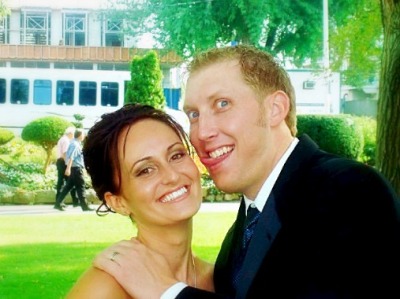A mum in the UK recently took her own life. Fellow PPD blogger Ivy Shih Leung wrote a very long and insightful piece about it here.
While I have not read anything beyond Ivy’s piece, I want to address one of the issues Ivy touches on in her post. For me, it is one of the primary reasons women who struggle with a Perinatal Mood & Anxiety Disorder still fight so desperately with reaching out for help and then with actually receiving the proper help.
Our battle has multiple levels. Were PMAD’s a video game, we would have to survive level after harrowing level before finally reaching a properly educated doctor or therapist. Some of us may be lucky enough to skip all these harrowing levels but for most of us, we are destined to fight with all we have while we don’t have much just to get by in a world expecting us to be super mom while we are at it.
First, we have to fight with ourselves to acknowledge that there is a problem.
Then, we fight with loved ones for help with every day tasks and with reaching out for help. We fight the argument that we are “faking” or “pretending” just to get out of housework or parenting. We are, some of us, told to suck it up and get over it. Move on. We’ll fall in love with our children eventually. Worse yet, some of us are told depression is some sort of luxury the former generations did not have time with which to deal.
Next, we fight with the front desk folks at the doctor’s office who may tell us such things as “If you’re not suicidal, don’t call us until you are.” (And yes, shamefully, that DOES happen in real life).
We then level up to arguing with a doctor who may brilliantly tell us that our hormones should be back in order by now so of course it can’t be Postpartum Depression despite the fact that we just admitted several high risk symptoms to them. So we are referred to the therapist who calls and reschedules until we are exhausted and cancel altogether.
So we suck it up and try to make do on our own until the next baby when we completely fall apart and start the entire routine all over again. Only this time around, there is a little less resistance from family members and friends because they have seen you go through this before and realize that maybe, just maybe, she isn’t making it up this time around.
But we have to stay off the Internet because it’s a dangerous place for a woman with a PMAD to be – we will be judged for breastfeeding while taking medication or for giving formula because we have to medicate. We didn’t try hard enough to protect ourselves, there is something wrong with us. Damn straight there is something wrong with us – it’s an illness, it’s real, and it is hell.
Psychiatric stigma is bullshit. The divisiveness motherhood brings to a woman’s life is bullshit. Hell, sometimes just being a woman altogether is bullshit. Why we judge each other so harshly for our choices is so beyond me I don’t even know how to begin to understand why we do this. I’m serious – I truly do not understand the in-fighting or bickering.
It comes down to understanding one simple truth:
Each mother needs to do what is best for HER and for HER family. As long as she is doing just that, we do not need to judge, we do not need to place blame, stigma, guilt, or any other negative blanket upon her or her family.
The Internet can be a fabulous place for support if you end up surrounded by the right people and ignore the wrong people. It’s finding the wonderful people that is the challenge.
I have a simple dream, in closing. It’s a dream that one day, mothers of all sort of different beliefs, will be able to have a discussion about parenting without inadvertently reducing each other to panic attacks and/or tears because they’ve judged someone for doing something outside the realm of *their* comfort zone.
One day, right?




